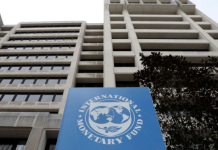ISLAMABAD: Zero tillage farming holds immense potential for revolutionising agriculture in Pakistan.
“This innovative farming practice will not only improve soil health but also play a significant role in mitigating the effects of climate change,” says Dr Muhammad Hanif, a senior scientific officer at the National Agriculture Research Centre (NARC).
Talking to WealthPK, he pointed out that traditional tillage methods involved ploughing and turning the soil before planting crops. “While this has been the norm for centuries, it has drawbacks. Excessive tillage can lead to soil erosion, nutrient loss and reduced soil organic matter.”
“The loss of fertile soil, biodiversity, as well as traditional seeds and knowledge constitute a grave threat to our food security in the future,” he said.
“However, soils that are healthier and more resistant to the effects of climate change give us more yield, which can help farmers improve their livelihood,” he added.
“Therefore, zero tillage farming is a conservation-oriented approach. It involves minimal disturbance to the soil, leaving crop residues on the field after harvest and sowing the next crop directly into these residues. This approach has several advantages.
“First and foremost, zero tillage helps improve soil health. By leaving crop residues on the field, it acts as a natural mulch, reducing soil erosion, improving moisture retention and enhancing soil structure. This not only leads to increased crop yields but also reduces the need for irrigation and the use of chemical fertilisers,” he added.
“Furthermore, zero tillage contributes significantly to climate change mitigation. By reducing soil disturbance, carbon sequestration in the soil is enhanced. This means more carbon dioxide is stored in the soil rather than released into the atmosphere.”
Hanif said in a country like Pakistan, which faces the challenge of climate change, adopting practices that mitigate its effects is crucial.
He added that another advantage of zero tillage is water conservation. “Pakistan is already a water-stressed country, and traditional tillage methods often result in water wastage due to increased evaporation. Zero tillage, with its mulch cover, reduces evaporation, allowing more water for crops.”
“Moreover, zero tillage can lead to significant cost savings for farmers. Reduced soil disturbance means less wear and tear on equipment, fewer fuel expenses, and lower labour costs. Over time, this can enhance the economic sustainability of farming operations in Pakistan.”
The NARC scientist said to harness these benefits, it is essential for government departments, agricultural organisations and farmers to collaborate in promoting and adopting zero tillage practices throughout the country. “By doing so, Pakistan can pave the way for a more sustainable and resilient agricultural future,” he said. –INP






